FAQ: Is A New Facebook Lawsuit Being Filed for Addiction?
- Last Updated: July 14th, 2025

Attorney Jessica Paluch-Hoerman, founder of TruLaw, has over 28 years of experience as a personal injury and mass tort attorney, and previously worked as an international tax attorney at Deloitte. Jessie collaborates with attorneys nationwide — enabling her to share reliable, up-to-date legal information with our readers.
Legally Reviewed
This article has been written and reviewed for legal accuracy and clarity by the team of writers and legal experts at TruLaw and is as accurate as possible. This content should not be taken as legal advice from an attorney. If you would like to learn more about our owner and experienced injury lawyer, Jessie Paluch, you can do so here.
Fact-Checked
TruLaw does everything possible to make sure the information in this article is up to date and accurate. If you need specific legal advice about your case, contact us by using the chat on the bottom of this page. This article should not be taken as advice from an attorney.
Key takeaways:
- Over 40 states and the District of Columbia have filed lawsuits against Meta, Facebook's parent company.
- The Facebook lawsuit represents a substantial effort by U.S. States Attorneys to combat the effects of social media on children's mental health.
- Addictive features built into Meta's platforms are causing significant harm to children's mental health according to the lawsuit
FAQ: Is A New Facebook Lawsuit Being Filed for Addiction?
Question: Is a new Facebook lawsuit being filed for addiction?
Answer: Yes, there is a new Facebook lawsuit filed by more than 40 states and the District of Columbia, claiming the social media giant has designed an algorithm that’s addictive and ensnares young users while providing misleading statistics regarding safety and privacy.
Intro to the Facebook Lawsuit for Addiction
On this page, we’ll provide an overview of the new Facebook lawsuit for addiction, various forms of misconduct alleged in the Facebook lawsuit, bipartisan efforts to hold Meta (the parent company) accountable, and much more.
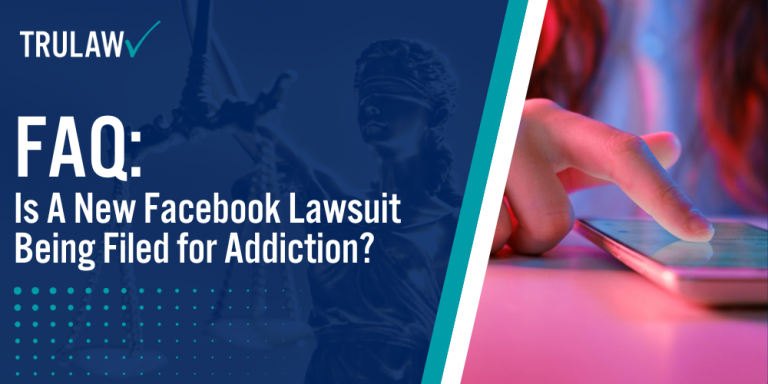
The Facebook lawsuit alleges that Meta has used manipulative strategies to make children addicted to its platforms, misled them regarding safety features and harmful content, and violated federal laws on children’s privacy.
The lawsuit against Meta outlines several primary objectives, such as:
- Secure restitution
- Obtain civil penalties
- Implement stricter age verification processes
- Enhance transparency in data collection practices
- Establish a fund for research on social media harm to children
If you’ve experienced mental health issues as a result of social media harm, contact TruLaw today using the chat on this page to receive an instant case evaluation.
Table of Contents
Facebook Lawsuit: Privacy Settlement
The Facebook lawsuit outlines specific steps for affected parties seeking redress and provides a framework for users to receive progress updates.
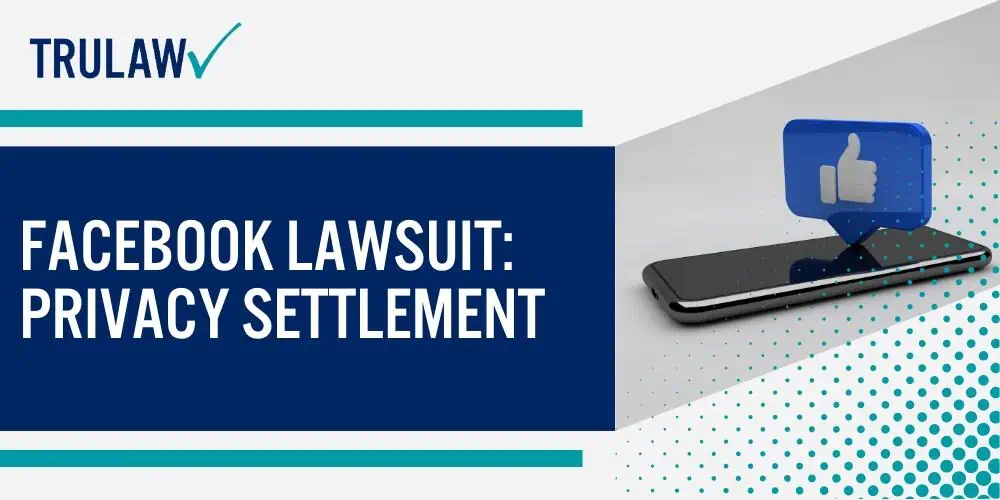
If you believe your privacy may have been compromised, signing up for notifications is imperative; this ensures you stay informed about your rights under the settlement and any pertinent developments as they unfold in district court proceedings.
Details of the settlement
The settlement reached in the district court against Facebook addresses severe concerns about the social media giant’s handling of user data and its impact on youth mental health.
As part of the agreement, Facebook has committed to creating more transparency around its data practices and taking steps to safeguard young users from harmful content that could lead to addiction or mental health issues.
Under this groundbreaking deal, Facebook will also compensate claimants who believe they have been negatively affected by the company’s platforms, including Instagram.
This aims to reduce compulsive social media usage that can lead to self-esteem problems and other physical health harms amongst younger demographics.
Recent Developments
This section ensures readers are up-to-date on how these unfolding events might affect those potentially impacted by the alleged addictive nature of such platforms and their mental health implications for young users.
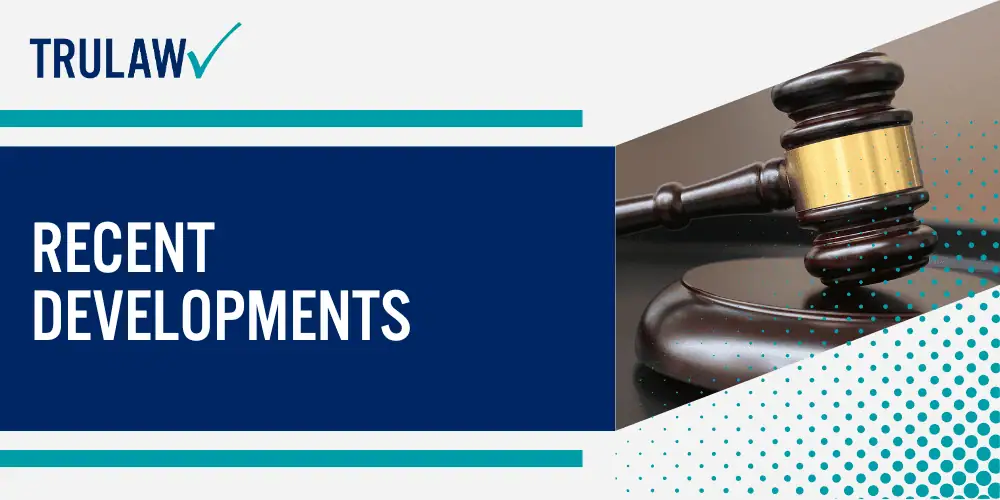
Latest news about the lawsuit
The Northern District of California is seeing a surge in legal activity as claims regarding the platform’s addictive nature and negative mental health impact, especially on teen girls, come to light.
Fresh allegations accuse these social media companies of using manipulative features designed to maximize social media addiction, citing evidence from internal company documents.
The case emphasizes how these powerful and unprecedented technologies may contribute to severe mental health problems among young people.
Lawyers have filed new motions pushing for stringent age-appropriate standards that would hold social media platforms accountable for knowingly inducing children into harmful patterns of behavior leading to body image issues, eating disorders, and even suicidal ideation.
The call for action aims not only at financial restitution but also seeks systemic changes within these platforms to protect youth from future harm.
Updates on rejected claims
Many people who filed claims as part of the Facebook lawsuit have received notifications about the status of their submissions.
Reports indicate that many of these claims have been rejected for various reasons, including missing information or failure to meet the strict eligibility criteria outlined by the court.
This development has stirred concerns among claimants, with some seeking clarity on how to proceed.
If your claim was among those denied, it’s essential to review the rejection notice for specific instructions on how to correct any errors and resubmit if possible.
The window for addressing rejected claims might be narrow, so timely action is essential.
If you’ve experienced mental health issues as a result of social media harm, contact TruLaw today using the chat on this page to receive an instant case evaluation.
Who is Eligible for a Facebook Lawsuit Payout?
In the midst of these allegations, one may wonder, who exactly stands to benefit financially from such a settlement?
The eligibility criteria for receiving a payout are pivotal in determining who can partake in the compensation offered through this lawsuit.
Individuals must meet specific standards set forth by the legal agreement to qualify.
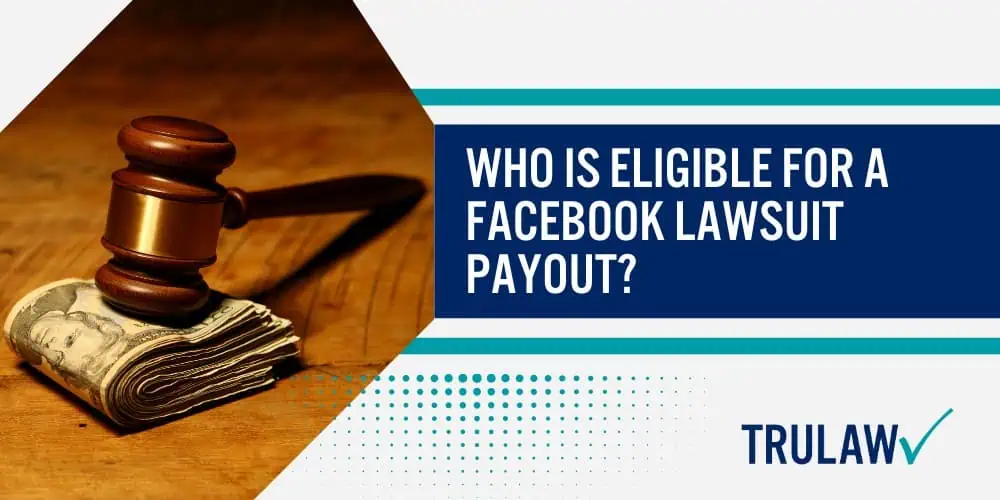
To verify if you fall within these parameters, it is imperative to review and understand the established eligibility guidelines provided by court documents or via official communications related to the case.
This step ensures that claimants can ascertain their rightful position in seeking restitution amidst concerns surrounding addictive social media use and its impacts on young people’s mental health.
Criteria for receiving a payout
Determining your eligibility for a payout from the Facebook settlement is straightforward.
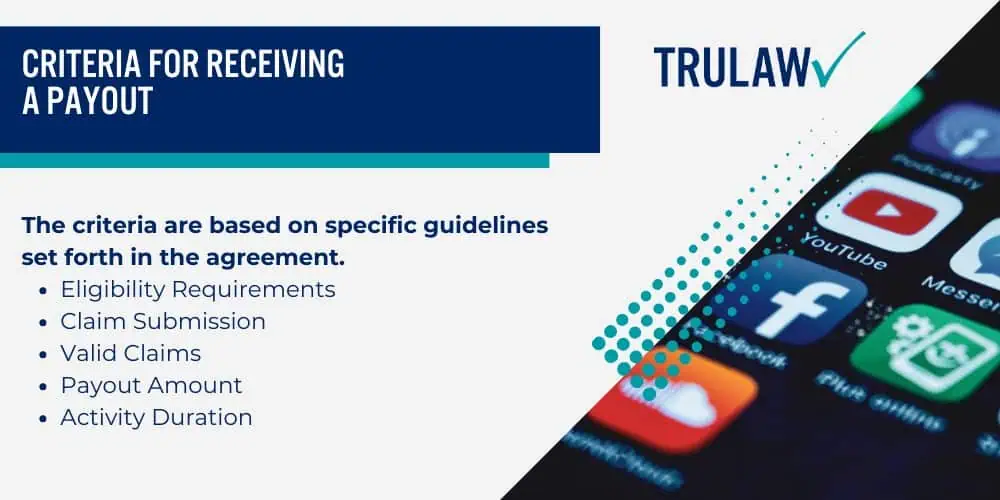
The criteria are based on specific guidelines set forth in the agreement.
- Eligibility Requirements: You must have had an active Facebook account between May 24, 2007, and December 22, 2022. This period marks the class action frame.
- Claim Submission: Applicants need to file their claims by August 25, 2023. Missing this deadline means forfeiting your right to a payout.
- Valid Claims: It’s essential for claims to be valid; some individuals have already received notices of rejection. Ensure that all required information is accurately provided.
- Payout Amount: The total amount available for payouts will be divided among all claimants with valid submissions; therefore, your personal payout size will vary depending on the total number of claimants and how long each was active on Facebook.
- Activity Duration: If you’re wondering how long you needed to use Facebook to qualify, know that there aren’t any specific duration requirements outlined in the settlement terms. However, longer usage could influence payout size.
How to check eligibility
Figuring out if you’re eligible for a payout from the social media lawsuits can be straightforward.
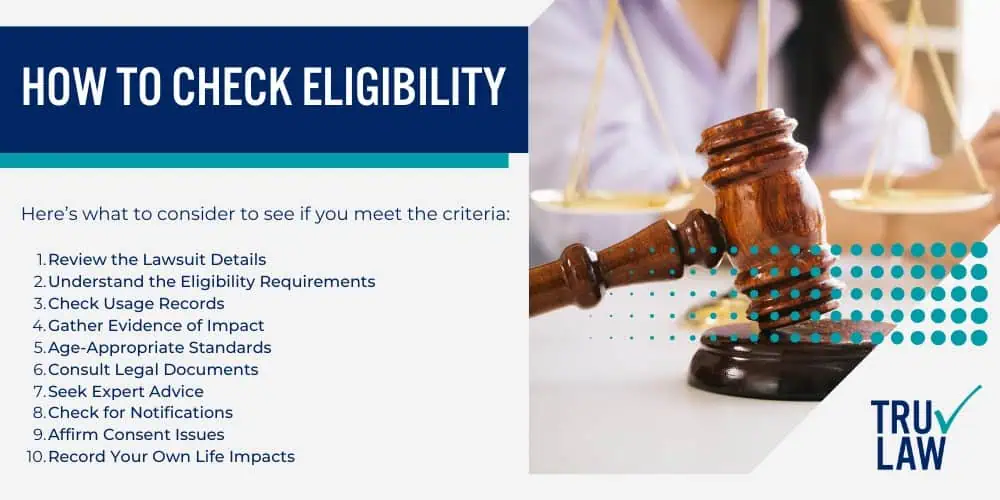
Here’s what to consider to see if you meet the criteria:
- Review the Lawsuit Details: Look up the specific lawsuit against Facebook claiming that they knowingly induced young children into addiction, resulting in mental health harms.
- Understand the Eligibility Requirements: Each lawsuit has unique criteria, typically including proof of usage and impacts on mental health like low self-esteem or negative social comparison.
- Check Usage Records: Gather your Facebook or other social media companies’ usage data and timestamps to show consistent activity on their platforms.
- Gather Evidence of Impact: Compile any medical records or personal journals that document how extensive use of these platforms contributed to mental health issues such as self-harm or suicide attempts.
- Age Appropriate Standards: Confirm if your age at the time of using Facebook aligns with the lawsuit’s focus on teen users and young people spend on their apps.
- Consult Legal Documents: Review public records from federal court rulings to understand previous decisions involving social media lawsuits and where your situation might fit.
- Seek Expert Advice: Contact school districts’ legal departments or look up information provided by the California Attorney General’s office about ongoing proceedings involving Meta employees and Instagram users.
- Check for Notifications: If you’ve already signed up for updates about privacy concerns and rights with regard to potential claims, keep an eye on any official communication you receive through mail or email regarding eligibility status.
- Affirm Consent Issues: Determine whether there was lacking parental consent during sign-up and interaction with such features as intermittent variable rewards that are designed to ultimately ensnare youth.
- Record Your Own Life Impacts: Chronicle how being on Facebook affected your daily life, college experience, brain development, or working productively in a tangible way that could support teens looking for positive experiences online while avoiding negative impacts.
Process for Claiming Payout
Applicants should be prepared to provide comprehensive personal details and evidence of their eligibility, adhering to the stringent guidelines set forth within the legal framework.
Throughout this procedure, claimants can expect communication from the settlement administrators to confirm receipt of claims and address any issues that may arise during verification.
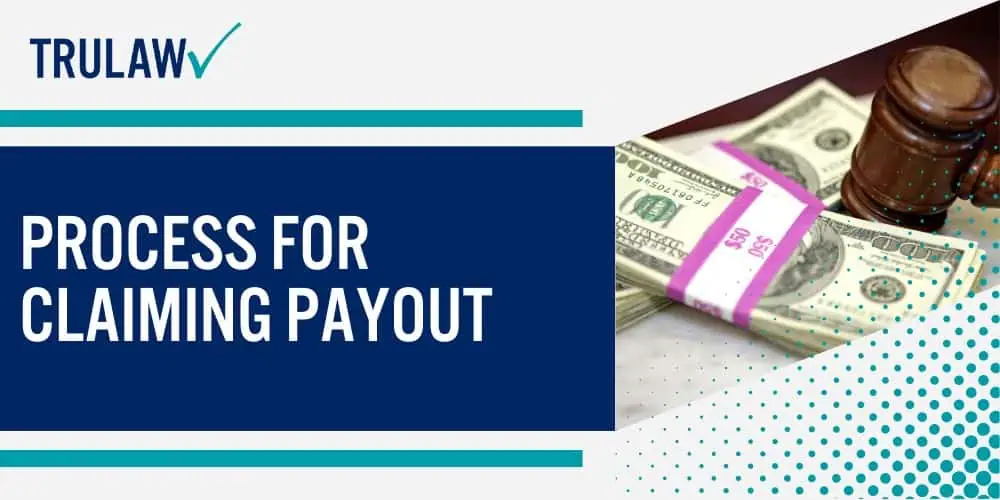
If you’ve experienced mental health issues as a result of social media harm, contact TruLaw today using the chat on this page to receive an instant case evaluation.
For those who qualify based on established criteria, patience is paramount as you anticipate confirmation and eventual distribution of funds—being attentive to notifications about potential delays or appeals within this timeline is essential for staying informed throughout this pivotal financial reconciliation process.
What to expect during the process
Once you’ve filed your claim, the review process begins.
Your documentation and eligibility are thoroughly checked against the criteria set by the Facebook lawsuit.
This stage can take time as each claim is individually assessed to ensure only qualified applicants receive payouts.
Expect communications from the administrators regarding any additional information they might need or updates on your claim status.
Timeline for Payouts
Payout distribution dates are set to occur after the claims processing period ends. Still, these dates may be subject to changes due to appeals or legal challenges, which have historically been known to cause delays.
Claimants should stay informed by monitoring official communications from the lawsuit administrators, who will provide updates on any shifts in scheduling or additional steps required before funds are released.
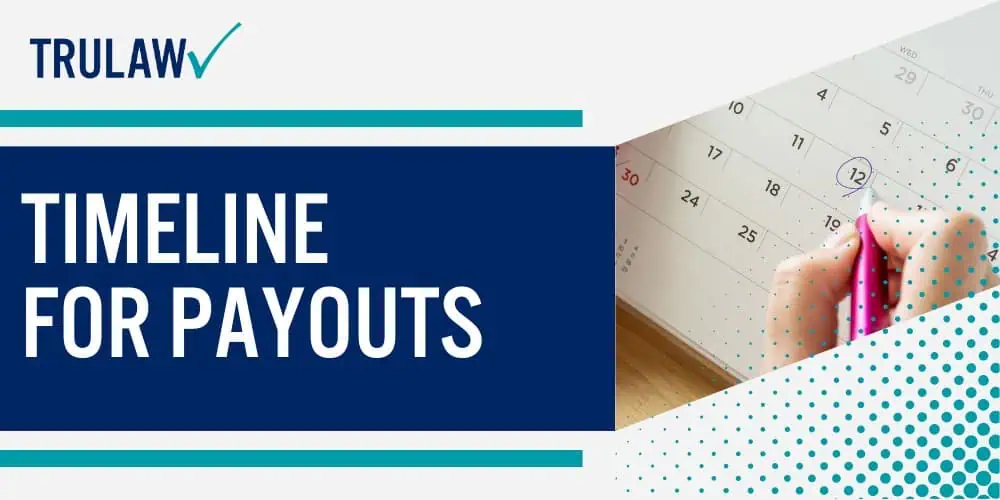
Individuals involved in this case must remain patient and vigilant as they navigate through what could potentially be a protracted payout phase.
When payouts will be distributed
Following the federal judge’s approval, Facebook is set to begin distributing its $725 million settlement to eligible claimants.
The funds are now unlocked and could start reaching individuals shortly.
However, anyone watching the process should know that appeals might delay these payments.
If an appeal is filed, it can significantly push back the timeline for receiving payouts, potentially dragging out the wait for months or even years.
For those who have submitted claims through either online portals or mail by the deadline, it’s essential to monitor updates regarding any potential holds caused by appeals.
This vigilance helps maintain realistic expectations about when one might receive their share of the settlement amidst ongoing legal developments surrounding Facebook’s lawsuit addressing addiction concerns and driving mental health harms among users.
Delays and potential appeals
The payout process for the Facebook lawsuit may encounter setbacks that can prolong distribution timelines.
Legal procedures, particularly in large class-action suits like those involving social media platforms, are often complex and subject to delays.
These can stem from an extensive review of claims or legal objections by either party.
It’s common in cases as substantial as this one for appeals to be filed against the initial ruling.
Such appeals could introduce further waiting periods before claimants receive their payouts.
It is also important for potential claimants to prepare for these hiccups in advance.
Keeping informed about new developments means regularly checking official updates or signing up with a contact list provided by the settlement administrators.
This proactive approach ensures individuals stay on top of any changes, including additional steps they might need to take or adjustments to expected timelines due to potential challenges mounted by parties within the lawsuit seeking different outcomes.
Background of the Facebook Lawsuit
The Facebook lawsuit erupted from extensive allegations that the social media giant leveraged its platform to foster addictive behaviors among users, particularly college students and those with low self-esteem.
Plaintiffs argue that Meta, formerly known as Facebook, neglected its duty to warn users about the potentially addictive nature of its services.
This controversy gained momentum after internal documents surfaced, revealing in-house research suggesting a link between prolonged use of Facebook and various mental health issues like self-harm and low self-esteem.
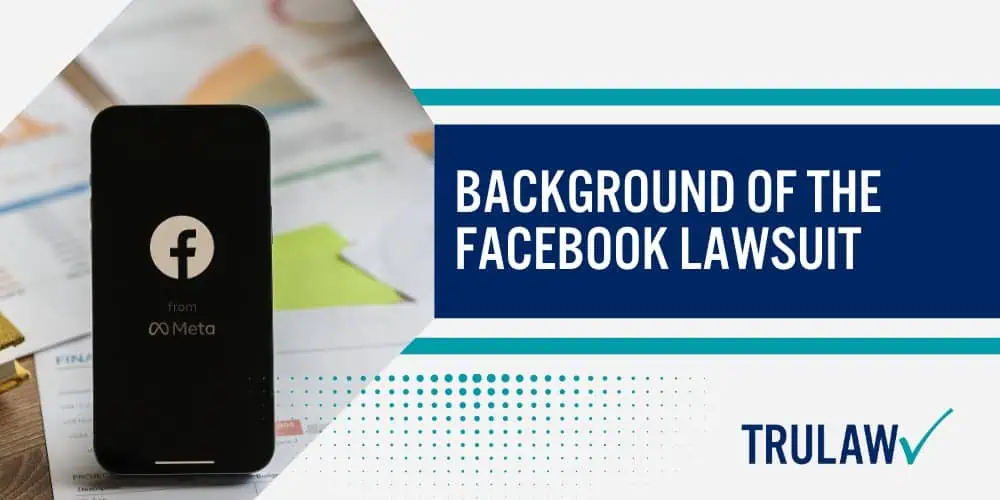
The lawsuit seeks to hold Meta accountable for these implications, asserting violations under communications decency statutes and other regulatory frameworks designed to protect consumers’ well-being online.
How the lawsuit came about
The Facebook addiction lawsuit emerged from growing concerns about the platform’s impact on users’ self-esteem and mental health.
Internal research by the company hinted at a potential link between prolonged use of their social media service and issues like low self-esteem, especially among young adults and college students.
Despite these findings, it was alleged that Facebook failed to warn users about the risks associated with its addictive properties.
Growing unrest led to claims that Facebook knew about but minimized evidence suggesting its platform contributed to self-harm and other negative psychological effects.
As a result, affected individuals are suing Meta, Facebook’s parent company, under the premise that they prioritized profits over people’s wellbeing.
The lawsuit seeks accountability for these actions and demands changes in how such powerful communication platforms operate in regard to transparency with internal documents related to user safety.
Facebook’s response
Facebook has been quite vocal about its stance on the mental health lawsuit.
Company representatives have claimed they prioritize user well-being and dispute the allegations that their platforms contribute to addiction.
They point out various features implemented to help users manage their screen time as evidence of their commitment to digital well-being.
Among these tools are dashboards and notifications designed to encourage breaks from social media.
Meta, Facebook’s parent company, is actively defending against claims tied to psychological impacts caused by platform use.
While acknowledging the public’s concerns, they emphasize rigorous efforts to create a safe online environment and enhance community standards through content moderation strategies to reduce harmful engagement.
Yet, even as payouts begin for privacy settlements unrelated to addiction issues, Meta continues working on improving its image amidst ongoing scrutiny from lawmakers, parents, and concerned citizens regarding other social media platforms under its umbrella.
Privacy Concerns and Rights
In the digital age, Facebook’s handling of user data underscores a broader conversation about online privacy rights and individual security.
As users navigate their presence on social media platforms, they are increasingly seeking control over personal information and questioning how companies like Facebook use that data.
This section discusses the mechanisms employed by Facebook for data management and offers practical advice for users looking to secure their private information against unwarranted access or exploitation.
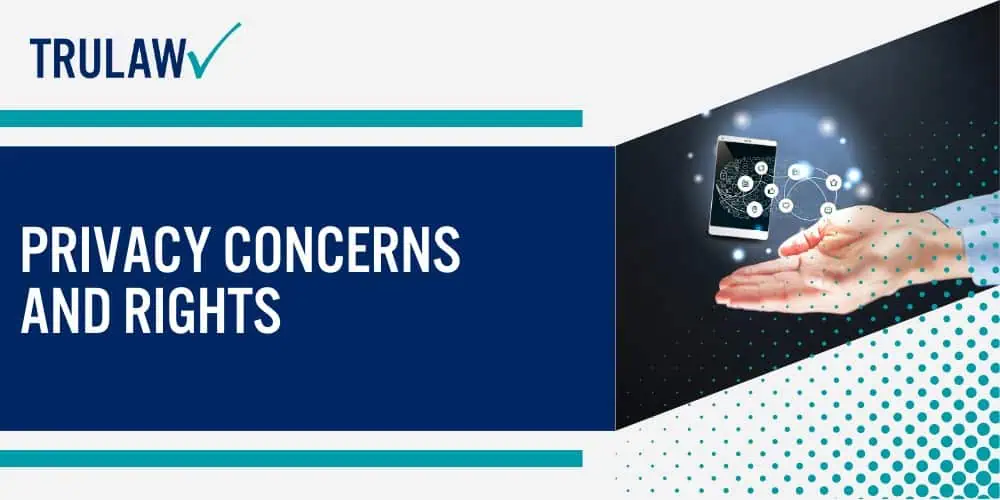
It aims to empower readers with knowledge of their privacy concerns within social media spaces, detailing the rights they possess and steps they can take to enforce those rights effectively.
How Facebook handles user data
Facebook has had a history of managing user data in ways that raised eyebrows across the globe.
In the past, they’ve been caught sharing personal information with third-party companies without clear consent from users.
This practice led to massive privacy concerns and ultimately resulted in Facebook’s parent company, Meta, agreeing to a monumental $725 million settlement.
The lawsuit alleged that Facebook was not transparent about its data-sharing practices and did not do enough to protect user privacy.
To address these issues and comply with regulations, Facebook has since made changes to its policies and introduced new features aimed at giving users more control over their data.
These include tools to manage privacy settings, view and download personal data collected by Facebook, as well as options to opt out of certain types of data collection and usage.
However, skeptics continue monitoring how effectively such measures protect consumer rights and whether the tech giant upholds its commitments to ethical handling of user information going forward.
Options for protecting personal information
Understanding how to protect your personal information is crucial, especially in light of the recent privacy concerns surrounding social media platforms like Meta’s Facebook and Instagram.
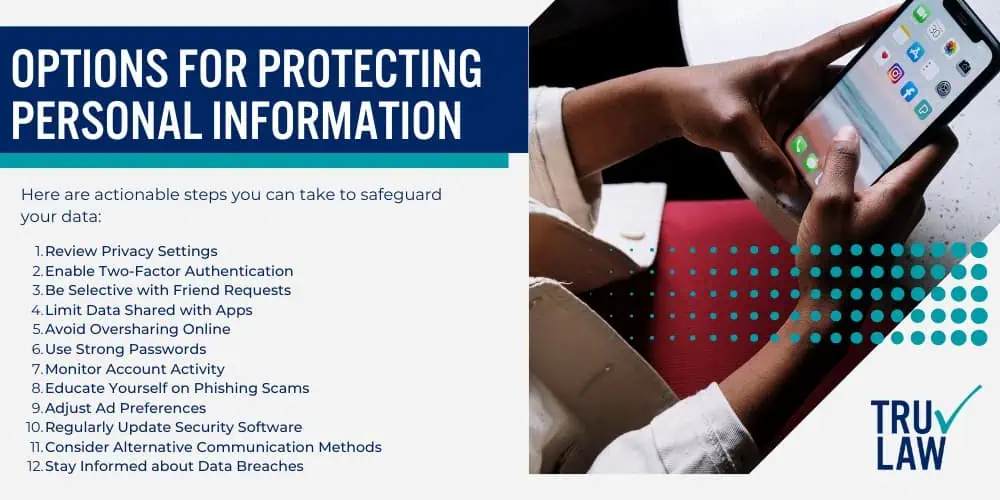
Here are actionable steps you can take to safeguard your data:
- Review Privacy Settings: Regularly check your privacy settings on all social media accounts to control who sees your posts and personal information.
- Enable Two-Factor Authentication: Add an extra layer of security by setting up two-factor authentication, which requires a second form of identification before access is granted.
- Be Selective with Friend Requests: Accept friend requests only from people you know personally to prevent strangers from accessing your private information.
- Limit Data Shared with Apps: Investigate which third-party apps have permission to access your social media account data and revoke any that aren’t necessary or trustworthy.
- Avoid Oversharing Online: Think twice before posting sensitive personal details that could be exploited by others for identity theft or other malicious purposes.
- Use Strong Passwords: Create complex passwords using a mix of letters, numbers, and symbols to make it harder for cybercriminals to hack into your accounts.
- Monitor Account Activity: Keep an eye out for any unusual activity on your accounts, such as unrecognized logins or posted content that wasn’t shared by you.
- Educate Yourself on Phishing Scams: Learn how to recognize phishing attempts that aim to trick you into giving away login information or downloading malware.
- Adjust Ad Preferences: Go through the ad preferences settings to limit how much of your behavior is tracked for advertising purposes across the platform.
- Regularly Update Security Software: Ensure that any device used to access social media has up-to-date antivirus software to help block malicious attacks.
- Consider Alternative Communication Methods: For sensitive conversations, consider using messaging services with end-to-end encryption rather than relying solely on social media platforms.
- Stay Informed about Data Breaches: Sign up for updates regarding data breaches so you can act quickly if an online service you use is compromised.
Conclusion
The recent lawsuit developments bring to light ongoing concerns about social media’s impact on our well-being.
For those affected, taking action through the claim process offers a path to potential restitution.
Remember to mark your calendars for the August 25th filing deadline and check your eligibility for participation in this significant settlement.
Empowerment begins with being informed and proactive—this is your opportunity to stand up against practices that may have crossed ethical lines.
Social Media Harm Lawsuits Frequently Asked Questions
-
The new Facebook lawsuit is brought forward by the New Mexico state attorney general, alleging that Meta’s platforms (Facebook and Instagram) have become a “marketplace for predators in search of children.
The New Mexico attorney general’s investigation involved creating test profiles on Facebook and Instagram that appeared to be teenagers or preteens.
It was found that these profiles attracted predators and received inappropriate recommendations.
If you’ve experienced mental health issues as a result of social media harm, contact TruLaw today using the chat on this page to receive an instant case evaluation.
-
A U.S. judge approved a $725 million data privacy settlement with Facebook’s parent company, Meta Platforms, over allegations that Facebook allowed Cambridge Analytica and other third parties access to users’ personal information.
If you’ve experienced mental health issues as a result of social media harm, contact TruLaw today using the chat on this page to receive an instant case evaluation.
-
A judge in San Francisco approved a $725 million settlement requiring Facebook to compensate for privacy violations.
The settlement is related to allegations of sharing user data with third parties.
If you’ve experienced mental health issues as a result of social media harm, contact TruLaw today using the chat on this page to receive an instant case evaluation.
-
The Facebook lawsuit, like many other social media harm lawsuits, is centered around the claim that social media platforms can cause mental health issues such as eating disorders, self-harm, addiction, and more in children and teens.
If you’ve experienced mental health issues as a result of social media harm, contact TruLaw today using the chat on this page to receive an instant case evaluation.

Managing Attorney & Owner
With over 25 years of legal experience, Jessica Paluch-Hoerman is an Illinois lawyer, a CPA, and a mother of three. She spent the first decade of her career working as an international tax attorney at Deloitte.
In 2009, Jessie co-founded her own law firm with her husband – which has scaled to over 30 employees since its conception.
In 2016, Jessie founded TruLaw, which allows her to collaborate with attorneys and legal experts across the United States on a daily basis. This hypervaluable network of experts is what enables her to share the most reliable, accurate, and up-to-date legal information with our readers!
Additional Social Media Harm Lawsuits resources on our website:
Here, at TruLaw, we’re committed to helping victims get the justice they deserve.
Alongside our partner law firms, we have successfully collected over $3 Billion in verdicts and settlements on behalf of injured individuals.
Would you like our help?
At TruLaw, we fiercely combat corporations that endanger individuals’ well-being. If you’ve suffered injuries and believe these well-funded entities should be held accountable, we’re here for you.
With TruLaw, you gain access to successful and seasoned lawyers who maximize your chances of success. Our lawyers invest in you—they do not receive a dime until your lawsuit reaches a successful resolution!
AFFF Lawsuit claims are being filed against manufacturers of aqueous film-forming foam (AFFF), commonly used in firefighting.
Claims allege that companies such as 3M, DuPont, and Tyco Fire Products failed to adequately warn users about the potential dangers of AFFF exposure — including increased risks of various cancers and diseases.
Depo Provera Lawsuit claims are being filed by individuals who allege they developed meningioma (a type of brain tumor) after receiving Depo-Provera birth control injections.
A 2024 study found that women using Depo-Provera for at least 1 year are five times more likely to develop meningioma brain tumors compared to those not using the drug.
Suboxone Tooth Decay Lawsuit claims are being filed against Indivior, the manufacturer of Suboxone, a medication used to treat opioid addiction.
Claims allege that Indivior failed to adequately warn users about the potential dangers of severe tooth decay and dental injuries associated with Suboxone’s sublingual film version.
Social Media Harm Lawsuits are being filed against social media companies for allegedly causing mental health issues in children and teens.
Claims allege that companies like Meta, Google, ByteDance, and Snap designed addictive platforms that led to anxiety, depression, and other mental health issues without adequately warning users or parents.
Transvaginal Mesh Lawsuits are being filed against manufacturers of transvaginal mesh products used to treat pelvic organ prolapse (POP) and stress urinary incontinence (SUI).
Claims allege that companies like Ethicon, C.R. Bard, and Boston Scientific failed to adequately warn about potential dangers — including erosion, pain, and infection.
Bair Hugger Warming Blanket Lawsuits involve claims against 3M — alleging their surgical warming blankets caused severe infections and complications (particularly in hip and knee replacement surgeries).
Plaintiffs claim 3M failed to warn about potential risks — despite knowing about increased risk of deep joint infections since 2011.
Baby Formula NEC Lawsuit claims are being filed against manufacturers of cow’s milk-based baby formula products.
Claims allege that companies like Abbott Laboratories (Similac) and Mead Johnson & Company (Enfamil) failed to warn about the increased risk of necrotizing enterocolitis (NEC) in premature infants.
Here, at TruLaw, we’re committed to helping victims get the justice they deserve.
Alongside our partner law firms, we have successfully collected over $3 Billion in verdicts and settlements on behalf of injured individuals.
Would you like our help?
